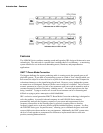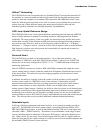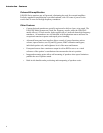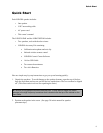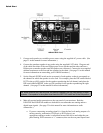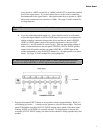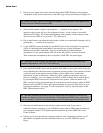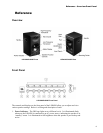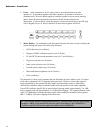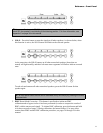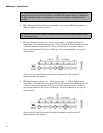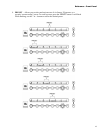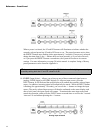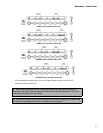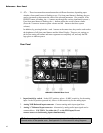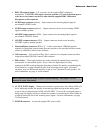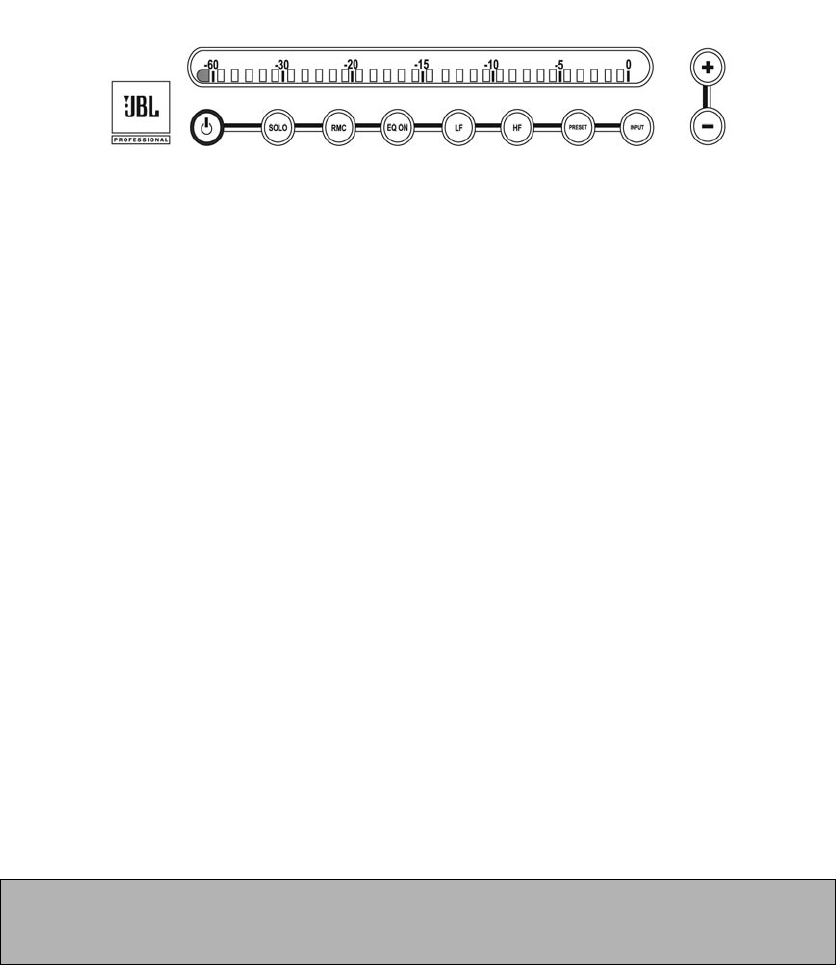
10
2. Power – After connection to an AC power source, press this button to turn the
speaker on. If networked together with other speakers, all speakers will turn on
simultaneously. Press the button again to return the speaker to a low-power stand-by
mode, where the internal amplifiers are turned off and all user functions are
deactivated. As shown below, when the speaker is powered on and active, the JBL logo
will be brightly lit (see #1 above) and the left-most meter segment will be lit:
3. Meter Display – In combination with front panel buttons, the meter is used to display the
current setting and status of the following functions:
• SOLO function (see #4 below)
• Progress of RMC calibration process (see #5 below)
• LF and HF EQ boost and attenuation (see #6, #7 and #8 below)
• EQ preset selection (see #9 below)
• Input source selection (see #10 below)
• Overall system volume (see #11 below)
• Meter and button brightness (see #11 below)
• Error conditions
The meter has 31 three-color segments that can illuminate in green, amber or red. For many
of the above operations, all 31 segments light green only. However, when audio signal is
being reproduced by the speaker, all three colors are used and the meter is calibrated to
indicate the continuous output in decibels (dB) below the speaker’s full output capability.
Green LEDs indicate signal 8 dB (or more) below clipping; amber, approximately 7 to 4 dB
below clipping; and red, approximately 3 to 0 dB below clipping. The segment furthest to the
right (“0”) illuminates red when the input signal is has reached its maximum value (greater
than -1.5 dBFS) and causes clipping of the electronics.
The LSR4300 models include protective limiting. Limiting occurs when the output signal
exceeds -2 dBFS or the second LED from the right is illuminated (in the LSR4328P) or
-5 dbFS or the fifth LED from the right is illuminated (in the LSR4326P).
Reference - Front Panel



